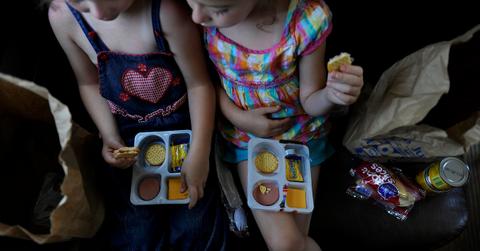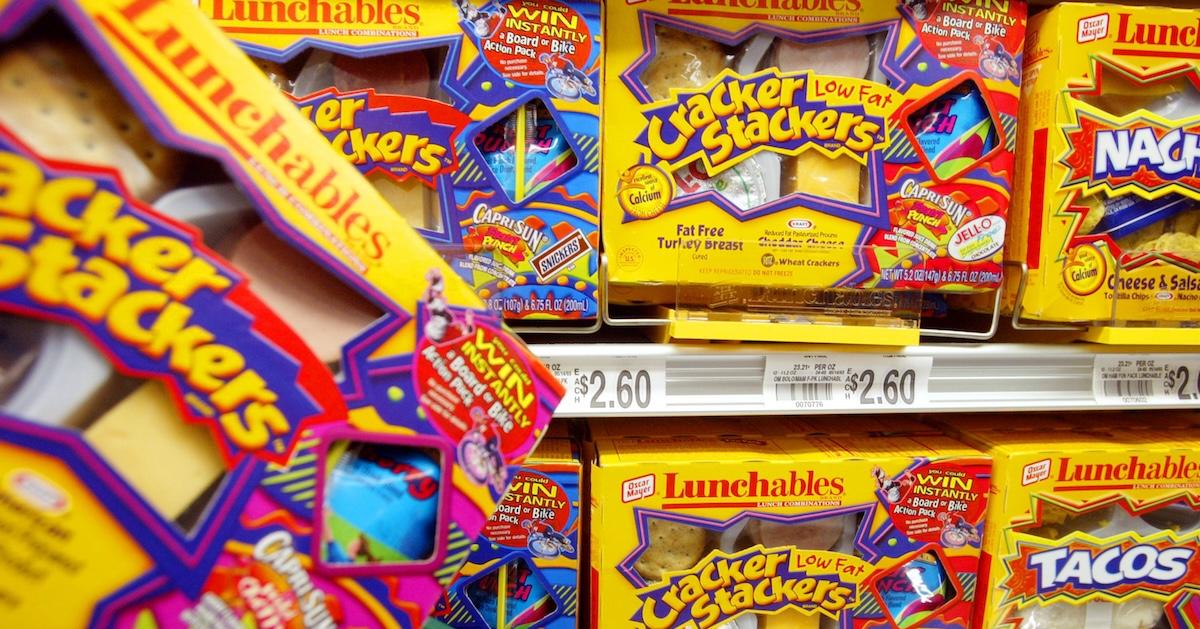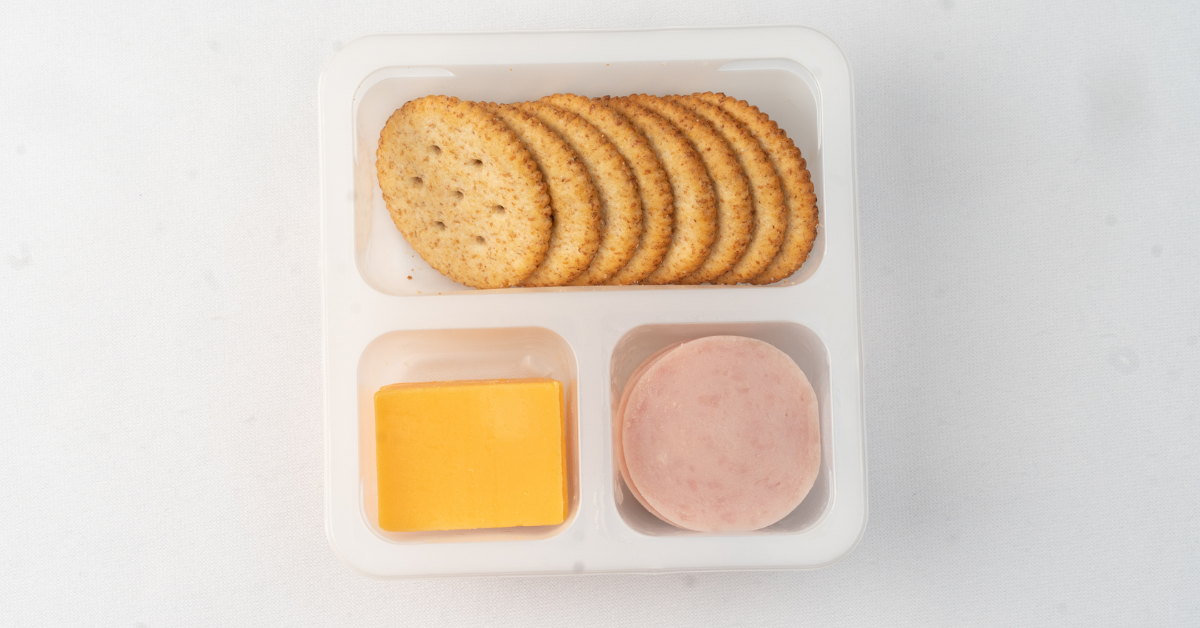Consumer Advocacy Report Detects Lead In Lunchables
There are no safe levels of lead exposure for children.
Updated April 15 2024, 10:34 a.m. ET

Lunchables have long a centerpiece of American school lunches, but after an April 2024 investigation by Consumer Reports, they may soon be a thing of the past. This news will be unfortunate for kiddos who have grown to love the fun lunch option — getting to build your own custom sandwich using pre-cut and prepared cheese, turkey, ham, and crackers has long been a favorite amongst even the pickiest of eaters — but music to the ears of concerned grownups.
It looks like Lunchables may be hiding more than the perfect cracker sandwich within its cleverly packaged product, raising worries over whether the fast and easy lunch item is actually introducing harmful ingredients like lead, sodium, cadmium, and more. Here's everything you need to know about the Lunchables report.

Do Lunchables have lead? Consumer Reports finds Lunchables contain significant lead, cadmium and sodium.
All of the kits tested by Consumer Reports showed "relatively high" levels of lead, cadmium and sodium.
This testing included Lunchables brand meal kits, as well as similar lunch kit products, like LunchMakers Cracker Crunchers and Greenfield's Natural Turkey & Cheese Lunch Kit.
The report goes on to say that all but one of the kits tested contained phthalates, a type of chemical commonly found in plastics that has been associated with health problems ranging from diabetes to certain cancers. These findings prompted the Consumer Reports director of food policy to issue a blanket statement saying that Lunchables "are not a healthy option" for children and shouldn't be served in schools.
The organization is formally requesting that the Department of Agriculture (USDA) remove Lunchables from the National School Lunch Program. This program allows Lunchables, which are produced by Kraft Heinz, to be served to students in schools across the country.
"By offering Lunchables in schools, we’re able to help meet schools’ needs by giving them affordable, convenient solutions that provide students with quality nutrition at lunchtime," a Kraft Heinz spokesperson said in a statement sent to Green Matters. The spokesperson also noted that the Lunchables served in schools are different than the ones available in stores. The school-approved kits contain more meat and sub in whole grain crackers.
Though CR only tested the store versions of Lunchables, the organization did analyze the nutrition information and ingredients lists for the school-approved versions.
"Those changes are marginal, and in our opinion do little to improve their nutritional makeup," CR chemist Eric Boring, Ph.D. stated. "We don’t think anybody should regularly eat these products, and they definitely shouldn’t be considered a healthy school lunch."

Lead poisoning in children can be serious — here are the symptoms.
When it comes to spotting signs that a child has been exposed to unhealthy levels of lead — and it's worth noting that the Centers for Disease Control and Prevention (CDC) says that there are no safe levels of lead exposure when it comes to children — you should look out for the following common symptoms:
- Delayed growth and development
- Behavioral and learning problems
- Trouble with hearing and speech.
Sadly, these changes are often permanent, according to the CDC. For any concerns regarding this, make sure to consult with your child's doctor.
Are Lunchables healthy?
The short answer is: no, Lunchables are not healthy. The website Is It Bad For You? notes that Lunchables and their store brand counterparts rely heavily on highly processed materials, which offer little to no nutrient value. Not only that, but they are loaded with high fructose corn syrup, something experts have been warning against for years.
Aside from the nutritional concerns surrounding questionable ingredients, Is It Bad For You? is also sounding the alarm over the fact that Lunchables can help kids develop poor eating habits later in life.
With all of this stacked up against Lunchables and other meal kits like them, it may be time to reexamine whether or not they're served to school children. Because, it seems like even before the Consumer Reports findings were released, many were already saying no to the on-the-go meal solution.
This article, originally published on April 10, 2024, has been updated to clarify that Consumer Reports only tested the store versions of Lunchables, not the school-approved versions, and to include further statements from Kraft Heinz and Consumer Reports.